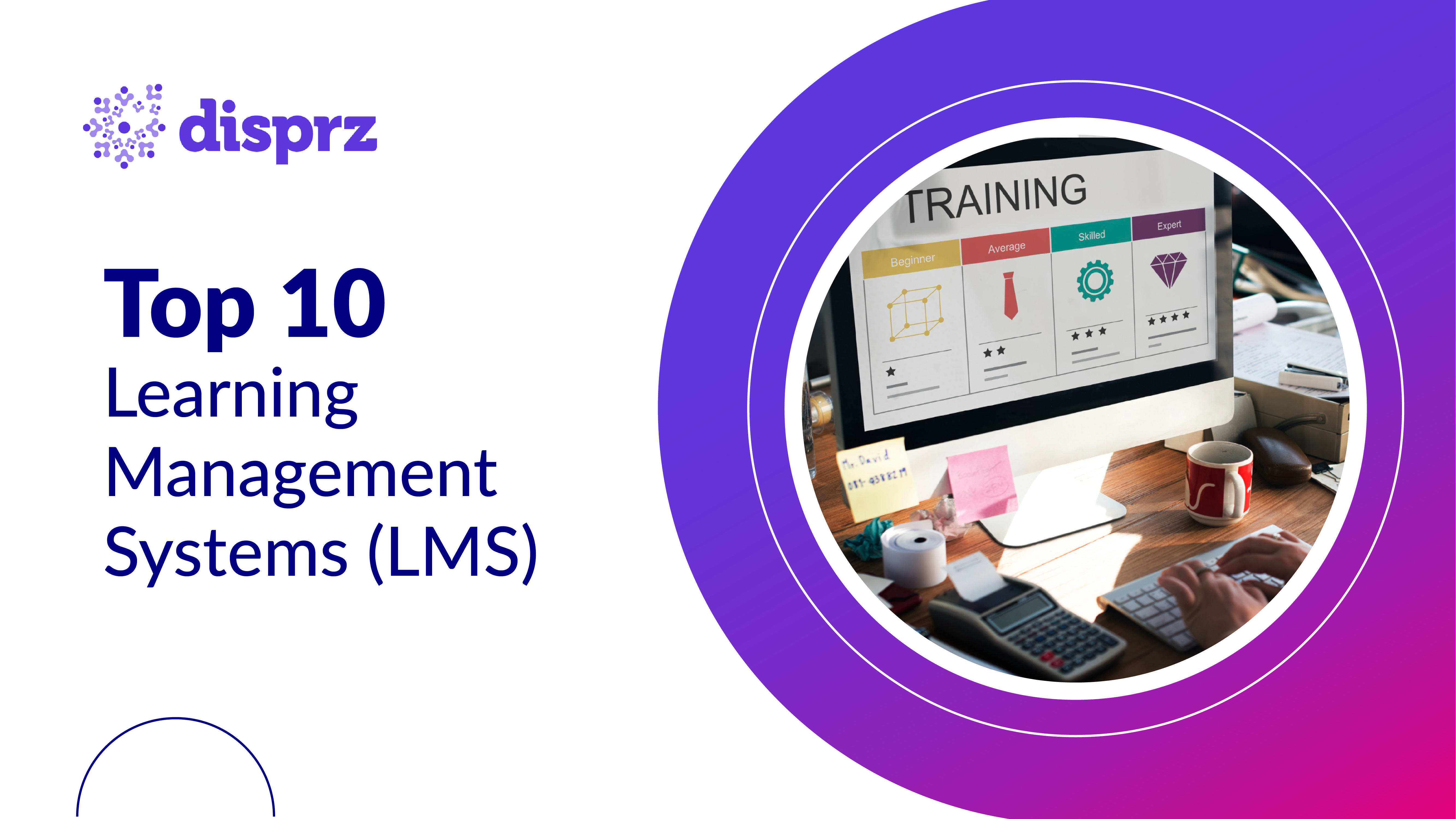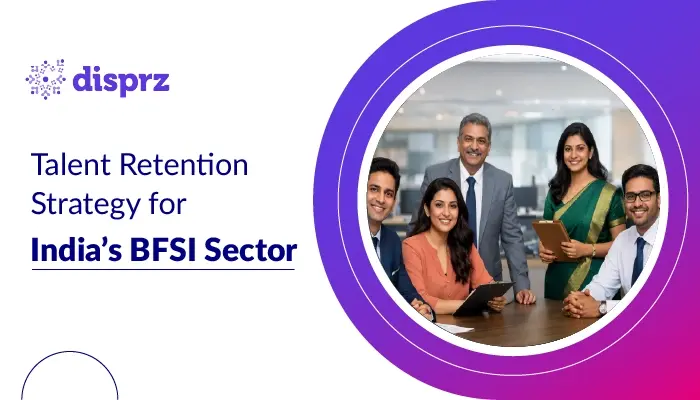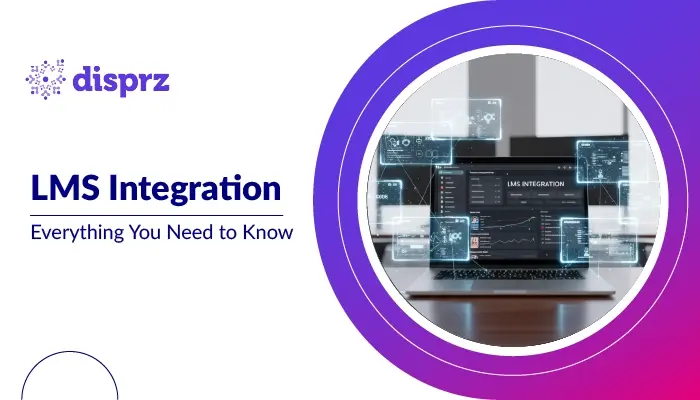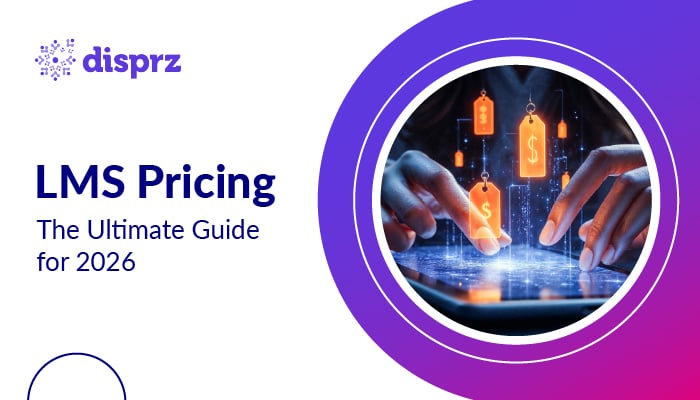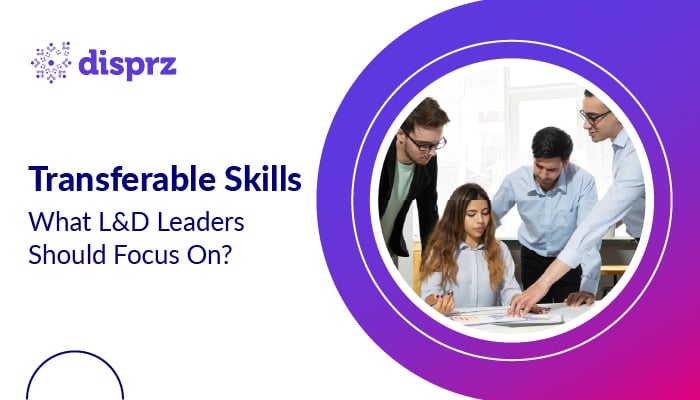The learning landscape is transforming fast; and so are Learning Management Systems (LMS). In 2026, the best LMS platforms go beyond content delivery to offer AI-powered personalization, skills analytics, and seamless employee experiences.
Whether you're a global enterprise or a growing business, choosing the right corporate LMS software can boost engagement, accelerate upskilling, and deliver measurable business ROI.
Explore our list of the top learning management systems in 2026 to find your perfect fit.
Introduction
The world of workplace learning has changed dramatically. In 2026, the best learning management systems (LMS) are not just digital repositories for courses; they are intelligent ecosystems that shape how organizations build skills, measure growth, and empower employees.
Artificial intelligence now plays a central role in learning. From AI-powered recommendations and skills gap analytics to automated learning paths, the modern corporate LMS software personalizes development at scale. Combined with advanced analytics and mobile-first delivery, learning is now real-time, data-driven, and deeply engaging.
Employee experience has also become the new frontier. Today’s top LMS platforms are designed for ease of use, continuous feedback, and integration with productivity tools, making learning a seamless part of work.
As organizations prioritize agility and skill readiness, let’s explore the top learning management systems in 2026 that are redefining employee training and business impact.
Why Your Organization Needs a Learning Management System in 2026
In a rapidly changing business environment, continuous learning isn’t optional; it’s a competitive advantage. The best learning management systems in 2026 enable organizations to future-proof their workforce, personalize growth, and align learning with business goals.
1) Drive Continuous Upskilling
AI-powered LMS platforms now use skills intelligence and personalized learning paths to identify gaps, recommend content, and predict future skill needs. This ensures every employee (from the frontline to leadership) keeps evolving with business priorities.
2) Ensure Compliance & Certification
A modern LMS automates compliance training, tracks certification renewals, and ensures audit readiness. This minimizes manual effort and mitigates regulatory risks across industries such as BFSI, healthcare, and manufacturing.
3) Enable Mobile, Micro, and Blended Learning
Today’s workforce learns on the go. The best LMS for employee training supports mobile learning, microlearning, and blended models; giving employees flexibility to learn anytime, anywhere, and at their own pace.
4) Reduce Training Costs & Boost Retention
By centralizing training, automating administration, and leveraging AI for content recommendations, organizations can cut training costs by up to 40% while improving learner engagement and retention.
Did You Know?
-
94% of employees say they would stay longer at an organization that invests in their learning and development. (LinkedIn Learning Report, 2024)
-
85% of organizations are increasing their investment in skills-based learning to stay competitive. (World Economic Forum, 2024)
-
Organizations using AI-driven LMSs see up to 30% faster skill acquisition and 2x higher engagement rates. (ATD, 2025)
Top 10+ Best Learning Management Systems in 2026
Here’s our curated list of the best LMS platforms in 2026, chosen for their innovation, scalability, and ability to deliver measurable learning impact. Each platform brings unique strengths; from AI-powered personalization to advanced analytics and superior learner experience.
1) Disprz LMS
Product Overview
Disprz is an AI-powered learning and skilling suite that helps enterprises align learning with business outcomes. It enables organizations to build a skills-first workforce through personalized journeys, analytics, and real-time impact measurement.
Key Features
-
AI-driven skill mapping and personalized learning paths
-
Comprehensive analytics with performance dashboards
-
Mobile-first, microlearning, and blended learning support
-
Integration with HRMS, CRM, and productivity tools
-
Capability Academy framework for continuous upskilling
-
Gamified engagement and social learning
Ideal For: Enterprises seeking a skills-based, analytics-led learning platform
Not Best Fit For: Small organizations with minimal customization needs
Pros
-
Deep skills intelligence and measurable ROI
-
Seamless integration with enterprise systems
Cons
Requires setup time for large-scale deployments
G2 Rating: 4.5 / 5
Use Case: Bajaj Allianz used Disprz to boost learning adoption and achieve measurable sales and productivity outcomes.
Source: g2.com
2) TalentLMS
Product Overview
TalentLMS is a lightweight, user-friendly cloud LMS ideal for small to mid-sized businesses. It offers fast deployment, simple management, and an engaging learner experience.
Key Features
-
Ready-to-use templates and course builder
-
Mobile and offline learning support
-
SCORM, xAPI, and video content compatibility
-
Basic gamification and quizzes
-
Integrations with Zoom, Slack, and Shopify
Ideal For: SMBs seeking a quick-to-launch training solution
Not Best Fit For: Enterprises needing deep customization or analytics
Pros
-
Extremely easy to set up and manage
-
Affordable with transparent pricing
Cons
Limited AI and analytics depth
G2 Rating: 4.6 / 5
Use Case: Popular among startups and small learning teams for onboarding and compliance training.

Source: g2.com
3) Cornerstone Learning
Product Overview
Cornerstone is a comprehensive enterprise learning suite offering advanced analytics, AI-driven personalization, and robust talent management integration.
Key Features
-
AI-powered learning recommendations
-
Skill graph and analytics dashboard
-
Compliance and certification management
-
Integration with HRIS and performance tools
-
Mobile and social learning capabilities
Ideal For: Large organizations seeking integrated talent & learning management
Not Best Fit For: Small teams needing a simple platform
Pros
-
Deep analytics and enterprise-grade scalability
-
Rich compliance and certification modules
Cons
Complex setup and higher pricing tiers
G2 Rating: 4.1 / 5
Use Case: Used extensively in BFSI, healthcare, and global enterprises for compliance and leadership development.
Source: g2.com
5) Absorb LMS
Product Overview
Absorb LMS combines elegant design with strong automation and reporting. It’s known for its intuitive interface and AI-based content recommendations.
Key Features
-
AI content recommendations and smart reporting
-
E-commerce and external training support
-
Custom dashboards and automation rules
-
Mobile app and offline learning
-
SCORM/xAPI compliant
Ideal For: Organizations wanting modern design and flexible automation
Not Best Fit For: Organizations needing extensive customization
Pros
-
User-friendly and visually engaging UI
-
Excellent customer support
Cons
Analytics less advanced than top AI LMSs
G2 Rating: 4.6 / 5
Use Case: Favored by professional services and retail organizations for fast, engaging training delivery.

Source: g2.com
6) Axonify
Product Overview
Axonify focuses on frontline employee learning through microlearning and gamified experiences. Its adaptive AI ensures knowledge retention and behavior change.
Key Features
-
AI-based daily microlearning feed
-
Reinforcement learning and quizzes
-
Gamification and rewards engine
-
Real-time knowledge analytics
-
Mobile-first delivery
Ideal For: Frontline and distributed workforce learning
Not Best Fit For: Knowledge workers or deep certification programs
Pros
-
Highly engaging microlearning experience
-
Proven impact on retention and behavior change
Cons
Limited depth for advanced course structures
G2 Rating: 4.7 / 5
Use Case: Retail and logistics enterprises use Axonify to improve frontline performance and compliance.

Source: g2.com
7) Moodle
Product Overview
Moodle is the world’s leading open-source LMS, offering flexibility, customization, and cost-effectiveness for education and corporate training alike.
Key Features
-
Open-source with plugin-based customization
-
SCORM, xAPI, and LTI compliant
-
Multilingual support and forums
-
Mobile app and blended learning options
-
Community support and a large developer base
Ideal For: Educational institutions and cost-conscious organizations
Not Best Fit For: Enterprises needing out-of-the-box AI and analytics
Pros
-
Highly customizable and budget-friendly
-
Large open-source community
Cons
Requires technical expertise for setup and maintenance
G2 Rating: 4.1 / 5
Use Case: Used by universities and NGOs globally for flexible, low-cost learning deployment.

Source: g2.com
8) 360Learning
Product Overview
360Learning blends collaborative and social learning with intuitive course creation tools, making it a standout for peer-driven corporate learning.
Key Features
-
Collaborative authoring and feedback
-
Social learning and discussion threads
-
Integrations with HRIS and video platforms
-
AI-driven learning recommendations
-
Analytics and engagement tracking
Ideal For: Teams prioritizing collaborative, peer-led learning
Not Best Fit For: Highly regulated industries needing strict compliance workflows
Pros
-
Encourages engagement and community-driven learning
-
Quick course creation and sharing
Cons
Limited enterprise-scale administration tools
G2 Rating: 4.6 / 5
Use Case: Widely used in tech, consulting, and education firms for cross-team knowledge sharing.

Source: g2.com
9) Adobe Learning Manager
Product Overview
Formerly Adobe Captivate Prime, Adobe Learning Manager delivers a polished UX with AI-based recommendations and deep analytics, ideal for content-rich enterprises.
Key Features
-
AI-driven content recommendations
-
Video learning and skill tracking
-
Fluidic player for any content type
-
Integration with Adobe Experience Manager
-
Built-in gamification and certification
Ideal For: Enterprises seeking a branded, content-centric learning environment
Not Best Fit For: SMBs with limited budgets
Pros
-
Seamless Adobe ecosystem integration
-
Beautiful, engaging learner interface
Cons
Premium pricing and limited customization flexibility
G2 Rating: 4.0 / 5
Use Case: Adopted by large enterprises in media, design, and tech for immersive learning experiences.

Source: g2.com
10) ProProfs Training Maker
Product Overview
ProProfs Training Maker is an easy-to-use LMS for small businesses and educators, enabling fast course creation with built-in quizzes and templates.
Key Features
-
Drag-and-drop course builder
-
Ready course templates and quizzes
-
Reporting and progress tracking
-
Mobile and blended learning support
-
Integration with Mailchimp, Salesforce
Ideal For: SMBs and educators needing a quick deployment LMS
Not Best Fit For: Enterprises requiring advanced AI or analytics
Pros
-
Simple and affordable
-
Excellent customer support
Cons
Lacks enterprise-level scalability and AI features
G2 Rating: 4.6 / 5
Use Case: Widely used by small businesses for onboarding, compliance, and customer education.

Source: g2.com
Quick Comparison: Top Learning Management Systems (2026)
| LMS Platform | Best For | Key Features | G2 Rating | Pricing Model |
|---|---|---|---|---|
| Disprz LMS | Enterprises focusing on skills-based, AI-driven learning | AI skill mapping, analytics, mobile learning, integrations | 4.5 / 5 | Custom, enterprise-tier pricing |
| TalentLMS | SMBs seeking simple, quick deployment | Easy setup, gamification, integrations, mobile support | 4.6 / 5 | Freemium + tiered plans |
| Cornerstone Learning | Enterprises wanting integrated talent + learning suite | Skill graph, analytics, compliance, social learning | 4.1 / 5 | Custom, enterprise pricing |
| Absorb LMS | Organizations prioritizing automation & modern UX | AI suggestions, reporting, e-commerce, dashboards | 4.6 / 5 | Subscription-based |
| Axonify | Frontline & retail teams needing microlearning | AI microlearning feed, gamification, mobile-first | 4.7 / 5 | Custom, per-seat pricing |
| Moodle | Educational & cost-conscious organizations | Open source, plugins, community support | 4.1 / 5 | Free + hosting cost |
| 360Learning | Teams preferring collaborative, peer-led learning | Social learning, authoring, analytics | 4.6 / 5 | Tiered subscription |
| Adobe Learning Manager | Enterprises seeking content-rich branded learning | AI recommendations, analytics, gamification | 4.0 / 5 | Custom enterprise pricing |
| ProProfs Training Maker | SMBs needing fast, affordable training setup | Templates, quizzes, reporting, integrations | 4.6 / 5 | Subscription-based (per user/month) |
How to Choose the Right LMS for Your Organization
Selecting the best learning management system is about aligning your learning goals, audience, and business priorities with the platform’s capabilities.
Here’s a step-by-step framework to help you make an informed decision in 2026:
What are your training goals and audience?
Start by defining why you need an LMS. Are you training new hires, frontline teams, or leaders? The best LMS for employee training should match your use case; whether it’s compliance, sales enablement, or continuous upskilling. Clarify outcomes (e.g., skill development, productivity gains, or retention) before comparing platforms.
How scalable and integrable is the LMS?
Your learning needs will evolve. Choose a system that scales across regions, roles, and departments; and integrates seamlessly with your existing tech stack (HRMS, CRM, collaboration tools). Scalable corporate LMS software should support both internal and external learners while maintaining data consistency.
Does it support AI-driven personalization and analytics?
In 2026, AI and analytics are non-negotiable. The best learning management systems leverage AI to recommend personalized learning paths, analyze skill gaps, and deliver predictive insights. Look for features such as skill graphs, adaptive learning, and real-time dashboards to measure training ROI effectively.
What are the pricing and support models?
Compare LMS vendors not just by price, but by total cost of ownership including setup, integrations, user limits, and support. A transparent pricing model helps avoid hidden costs, while strong customer success and technical support ensure a smooth rollout and adoption.
Can you try before you buy?
Most leading LMS providers offer free trials or guided demos. Use them to assess platform usability, learner experience, and reporting depth. Involve end users during testing; their feedback will highlight whether the platform truly fits your learning culture.
Conclusion
In 2026, the best learning management systems are not just training tools; they’re engines of business transformation. With AI, analytics, and skills intelligence at their core, modern LMS platforms empower organizations to close capability gaps, boost engagement, and align learning with performance outcomes.
Investing in the right corporate LMS software drives measurable ROI; from faster onboarding and higher retention to improved productivity and future-ready skills. The key is choosing a solution that fits your organization’s size, strategy, and vision for continuous learning.
Key Takeaways
-
The best learning management systems in 2026 combine AI, analytics, and personalization to deliver business-aligned learning at scale.
-
A modern corporate LMS enhances both employee experience and productivity, making learning an integral part of daily work.
-
Investing in skills-first, data-driven platforms helps organizations future-proof their workforce and stay competitive.
-
Choosing the right LMS depends on your goals, scalability needs, and integration ecosystem; not just cost.
-
Continuous upskilling through the right LMS leads to measurable ROI in engagement, retention, and performance.
Ready to Transform Learning in Your Organization?
The future of workplace learning is AI-powered, skill-driven, and deeply personalized; and the right LMS can get you there faster. Whether you’re reimagining employee upskilling, enabling frontline performance, or driving leadership growth, it starts with choosing the right platform.
Explore how Disprz can help you build a future-ready workforce. Request a personalized demo today and see how an AI-powered LMS can deliver measurable learning impact for your organization.
FAQs
1) What is the best LMS for enterprise training in 2026?
The best LMS for enterprise training depends on your goals and scale. For large organizations seeking AI, analytics, and measurable ROI, Disprz, and Cornerstone lead the pack. They offer personalization, integrations, and performance-linked analytics that drive business outcomes.
2) How do LMS and LXP differ in employee learning?
An LMS (Learning Management System) focuses on course delivery, compliance, and structured training. An LXP (Learning Experience Platform) emphasizes personalized, self-directed learning and skill discovery. Modern AI-powered LMS platforms such as Disprz now blend both; offering structured programs with consumer-grade experiences.
3) Which LMS offers the best mobile learning experience?
If your workforce is distributed or on the go, Disprz, TalentLMS, and Axonify stand out for their mobile-first design and offline learning capabilities. They enable continuous upskilling anytime, anywhere, ensuring accessibility without compromising engagement
4) Is there a free LMS for small businesses?
Yes. Moodle (open source) and TalentLMS (freemium version) are ideal for small businesses or educators with limited budgets. They provide essential learning delivery tools with scalable options as needs grow.
5) What should HR leaders look for in an LMS demo?
HR and L&D leaders should focus on ease of use, AI personalization, reporting depth, and integration flexibility during an LMS demo. Also, evaluate the platform’s ability to link learning to business KPIs; ensuring clear visibility into ROI and workforce impact.



